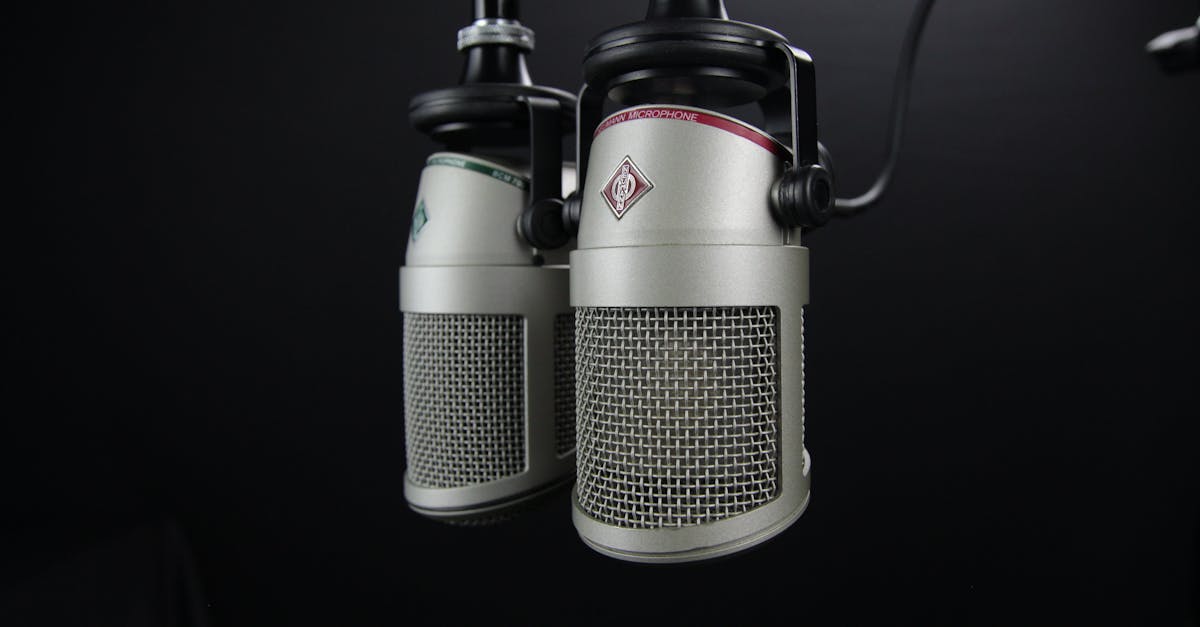
Table Of Contents
Techniques Used in Language Therapy
Techniques used in language therapy are tailored to address various communication difficulties individuals may experience. Specific exercises are designed to target improving language comprehension, expression, and overall communication skills. These techniques are often hands-on and interactive, promoting engagement and active participation in the therapy process. Speech and language therapy near me typically utilises evidence-based methods to enhance language abilities in individuals of all ages.
Language therapy may involve vocabulary building activities, which focus on expanding an individual's word knowledge and usage. Grammar exercises are also commonly integrated into language therapy sessions to improve sentence structure and clarity in communication. By incorporating a range of activities that cater to different aspects of language development, speech and language therapy near me aims to enhance verbal and nonverbal communication skills in clients seeking support for their communication difficulties.
Vocabulary Building and Grammar Activities
Speech and language therapy near me often entails engaging in vocabulary building activities to enhance an individual's word bank and their ability to effectively communicate. These activities can involve learning new words, understanding their meanings, and practicing how to use them in context. Furthermore, grammar activities are incorporated to help individuals develop a better grasp of sentence structure, tense usage, and overall language fluency. These exercises can involve identifying parts of speech, constructing grammatically correct sentences, and improving overall communication clarity.
In language therapy sessions nearby, clients may participate in vocabulary games such as word association or categorisation exercises. Additionally, grammar activities can include tasks like creating sentences with specific grammatical structures or correcting sentences with errors. By consistently engaging in these vocabulary building and grammar activities within speech and language therapy near me, individuals can strengthen their language skills and become more proficient communicators in various settings.
Goals of Speech Therapy
Goals of Speech Therapy
In the realm of communication disorders, speech therapy aims to enhance an individual's speech clarity and overall intelligibility. Through targeted interventions, speech therapists work to improve articulation, pronunciation, and fluency of speech. Speech therapy also focuses on addressing voice disorders, such as hoarseness or pitch issues, by employing various techniques tailored to each person's specific needs. For those in need, seeking professional support like "Speech and language therapy near me" can aid in achieving improved speech abilities and confidence in verbal expression.
The ultimate goal of speech therapy is to equip individuals with the necessary skills to communicate effectively and confidently in various social and professional settings. By targeting specific speech difficulties, such as stuttering or lisping, speech therapists assist clients in overcoming barriers to clear and concise communication. Additionally, speech therapy may also involve strategies to improve breathing techniques, resonance, and vocal projection, all of which contribute to a more coherent and engaging speech delivery. For anyone seeking to enhance their speech and communication abilities, exploring options for professional support, such as "Speech and language therapy near me," can prove to be a valuable step towards achieving tangible progress.
Improving Speech Clarity and Intelligibility
Speech and language therapy near me focuses on improving speech clarity and intelligibility for individuals with communication challenges. Therapists work closely with clients to target specific speech difficulties, such as articulation issues or stuttering. By using a variety of techniques and exercises, speech therapy aims to enhance the clarity of speech sounds and overall intelligibility for better communication outcomes.
In speech therapy, therapists may utilise tools like vocal exercises, articulation drills, and speech sound practice to help clients improve their ability to produce sounds accurately. Through consistent practice and guidance from a skilled therapist, individuals can work towards clearer and more intelligible speech, ultimately enhancing their overall communication skills.
Goals of Language Therapy
Language therapy aims to enhance the overall verbal and nonverbal communication skills of individuals. Through tailored interventions and strategies, speech and language therapy near me focuses on fostering effective communication abilities across various settings and scenarios. By targeting both expressive and receptive language skills, language therapy assists individuals in conveying their thoughts, emotions, and needs more clearly and proficiently.
Moreover, the goals of language therapy encompass improving pragmatic language skills, which refer to the appropriate use of language in social interactions. This aspect involves understanding conversational rules, interpreting nonverbal cues, and engaging in effective communication exchanges. Through a combination of structured activities and real-life practice, language therapy seeks to enhance an individual's ability to engage in meaningful interactions with others and navigate social situations with confidence.
Enhancing Verbal and Nonverbal Communication Skills
Enhancing verbal and nonverbal communication skills in language therapy is crucial for individuals seeking to improve their overall communication abilities. Therapists focus on developing both spoken language and nonverbal cues, such as gestures and facial expressions, to ensure effective communication in various settings. Through tailored exercises and activities, individuals can enhance their ability to convey thoughts and ideas clearly.
Individuals can benefit greatly from engaging in speech and language therapy near me to refine their verbal and nonverbal communication skills. By working closely with a qualified therapist, individuals can address communication challenges and develop strategies to express themselves more effectively. With dedicated practice and guidance from a professional, individuals can improve their overall communication skills and enhance their interactions with others in different social and professional environments.
FAQS
What is the main difference between speech therapy and language therapy?
Speech therapy primarily focuses on improving speech clarity and intelligibility, while language therapy aims to enhance verbal and nonverbal communication skills.
What techniques are commonly used in language therapy?
Language therapy often includes vocabulary building activities, grammar exercises, and various communication strategies to improve overall language skills.
What are the typical goals of speech therapy?
The main goals of speech therapy are to enhance speech clarity, improve pronunciation, and increase the intelligibility of a person's speech.
What are the goals of language therapy?
Language therapy aims to enhance both verbal and nonverbal communication skills, improve language comprehension, and boost overall communication abilities.
How do speech therapy and language therapy complement each other?
While speech therapy focuses on improving speech production, language therapy targets broader communication skills encompassing both verbal and nonverbal aspects, making them complementary in addressing communication challenges comprehensively.


